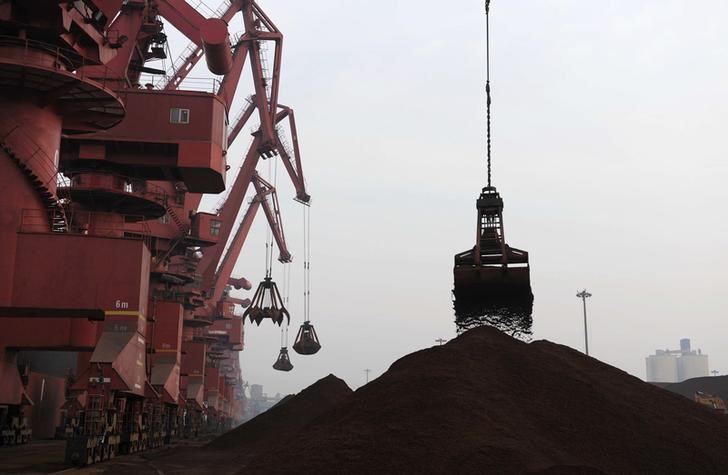By Michelle Chen and Polly Yam
HONG KONG (Reuters) - China has more than tripled the number of central government owned firms allowed to trade commodities derivatives overseas without regulator approval, sources told Reuters, in a move that will give China more clout in global markets for metals, energy and agricultural products.
Roughly 100 more large government-backed Chinese companies will be permitted to trade in international futures, swaps and options markets, according to three sources with direct knowledge of the changes. It marks the biggest expansion of the list in nearly 10 years.
"This will boost trading by Chinese companies, energy in particular, given airlines and crude producers need to do it,"
said the head of the futures department at a central government-owned company in the Chinese capital Beijing.
The source, who declined to be identified as he was not authorised to speak to the media, said his own firm had received notification of the change on Monday.
China is one of the world's biggest consumers of metals, energy and agricultural products and state-owned companies often have a high demand for hedging tools.
"This is one more step towards capital account opening and a sign they will allow more inflows and outflows across their borders," said Grace Tam, a markets strategist at JP Morgan Asset Management in Hong Kong.
"They want to encourage more outflows in the overseas markets and using derivatives for hedging purposes."
The change could be a boon for users of oil products such as airlines and shipping companies, and it should mean more business for futures exchanges in Chicago and New York, or on the London Metal Exchange (LME), which is owned by Hong Kong Exchanges and Clearing.
The move is also expected to benefit Chinese and global financial firms such as investment banks and brokerages, which have sought more business from Chinese government-backed companies for years as those firms are considered financially stronger, industry sources said.
The domestic derivatives market is relatively under-developed, but Beijing is preparing rapidly for further liberalisation of its capital account, while also seeking greater influence over prices of key commodities such as oil.
Big Chinese oil firms like Sinopec and PetroChina are already actively trading oil futures, such as Brent and WTI crude on exchanges on U.S.-owned Intercontinental Exchange (ICE) in London or Nymex in New York.
Firms owned by the central government that had been conducting hedging activities in global markets through their overseas units would now move such operations to Beijing and expand their business, the source at the central government-owned company in Beijing said.
The latest increase raised the number of firms approved for overseas trading in derivatives from 31 on an earlier list which had included a few companies owned by local governments rather than the central government.
China has 112 central government-owned enterprises, including industry leaders such as China Nuclear Industry Group, China Aviation Industry Group [CAVICA.UL] and Dongfeng Automobile Co (SS:600006).
Beijing has kept tight controls over state-owned enterprises' overseas derivatives trading following the global financial crisis. Some state-owned companies have racked up huge losses in metals and oil markets.
The State-owned Assets Supervision and Administration Commission of the State Council (SASAC) would endorse foreign exchange requirements needed to conduct such business from the State Administration of Foreign Exchange (SAFE), according to the sources.
SASAC declined to comment when contacted by Reuters.
Companies are still required to report their derivatives business activities to the state asset regulator, the sources said.
Beijing does not regulate private companies that trade commodity derivatives in the global market so long as they obtain the necessary forex exchange from regulators.
Chinese companies remain relative novices in the global derivatives trading, and some have made huge losses.
CITIC Ltd (HK:0267), which was known as CITIC Pacific in 2008, saw mark-to-market losses of around $2 billion as a result of the foreign exchange position it took to hedge currency exposure from its Australian iron ore mining project.
Earlier, Air China (SS:601111) (HK:0753) and China National Aviation Fuel also suffered losses in the derivatives market.
"The key is having people who understand derivatives well. Even if the government allows this, enterprises will be cautious", said a senior coal trader who declined to be identified as he was not authorised to speak to the media.
